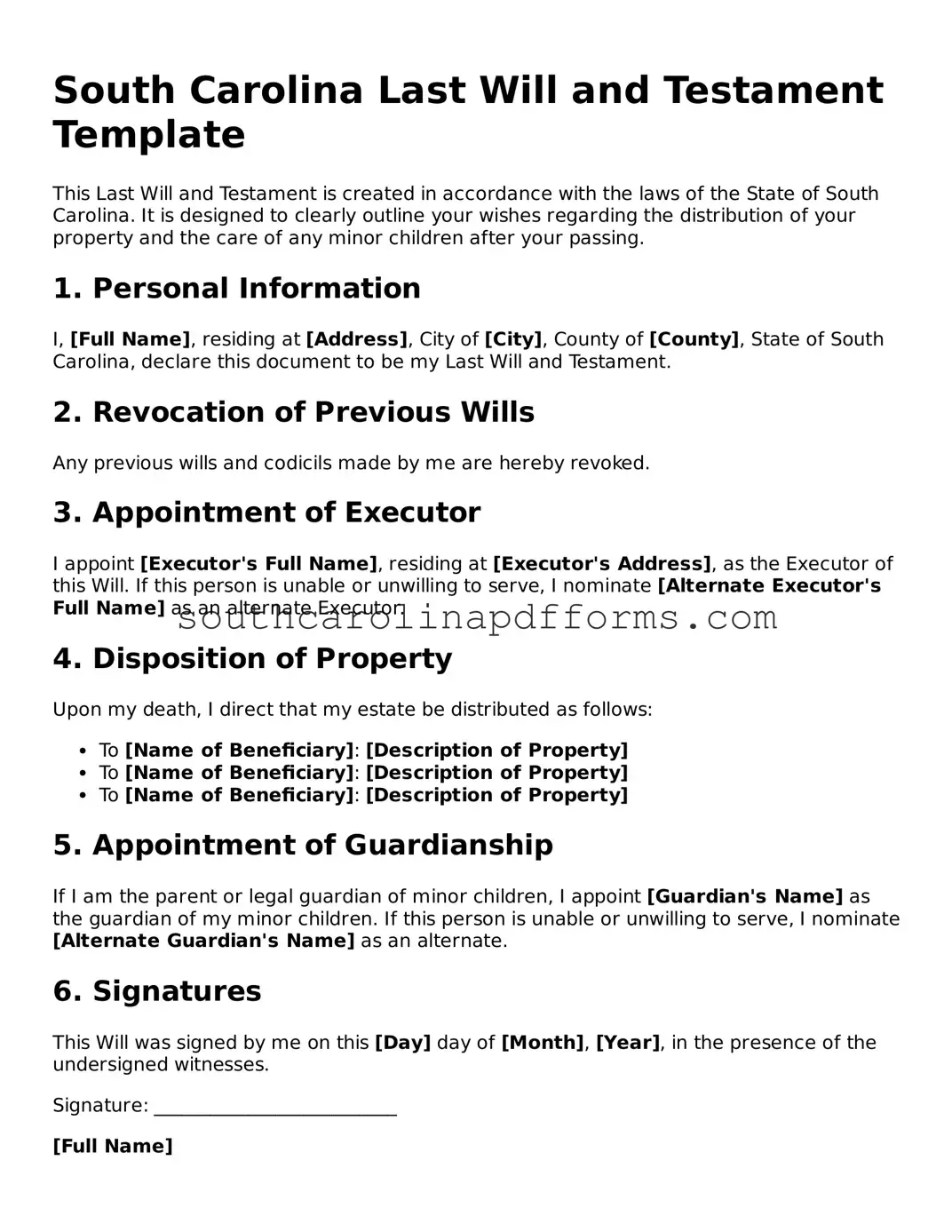In South Carolina, the Last Will and Testament form serves as a crucial legal document that outlines an individual’s wishes regarding the distribution of their estate after death. This form provides a structured way for individuals to express their desires concerning the allocation of assets, appointment of guardians for minor children, and designation of an executor to oversee the administration of the estate. It is essential for ensuring that personal wishes are honored and that the process of settling an estate is conducted smoothly. The form typically requires the testator’s signature, along with the signatures of witnesses, to validate its authenticity and enforceability. Additionally, South Carolina law mandates specific criteria that must be met for the will to be considered valid, including the testator’s mental capacity and the absence of undue influence. Understanding these elements is vital for anyone looking to create a will that accurately reflects their intentions and protects their loved ones. By carefully considering the contents of this form, individuals can take an important step toward securing their legacy and providing clarity for those they leave behind.
